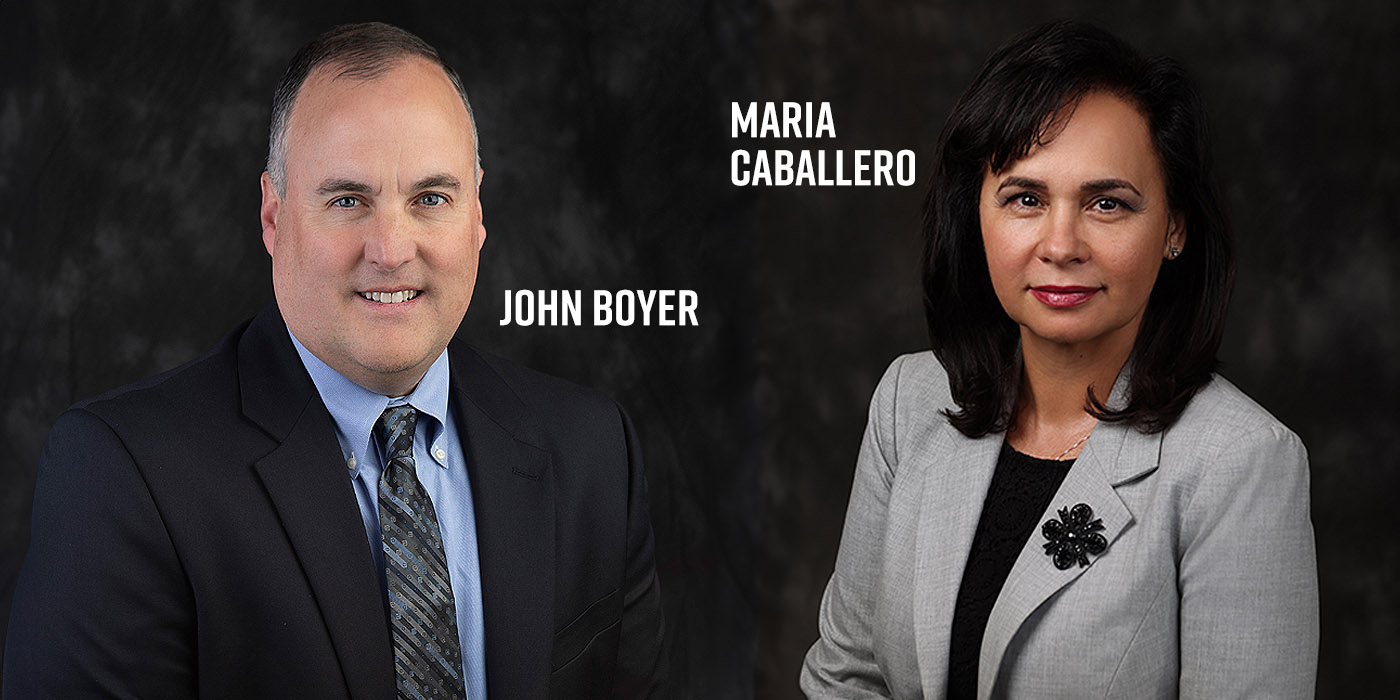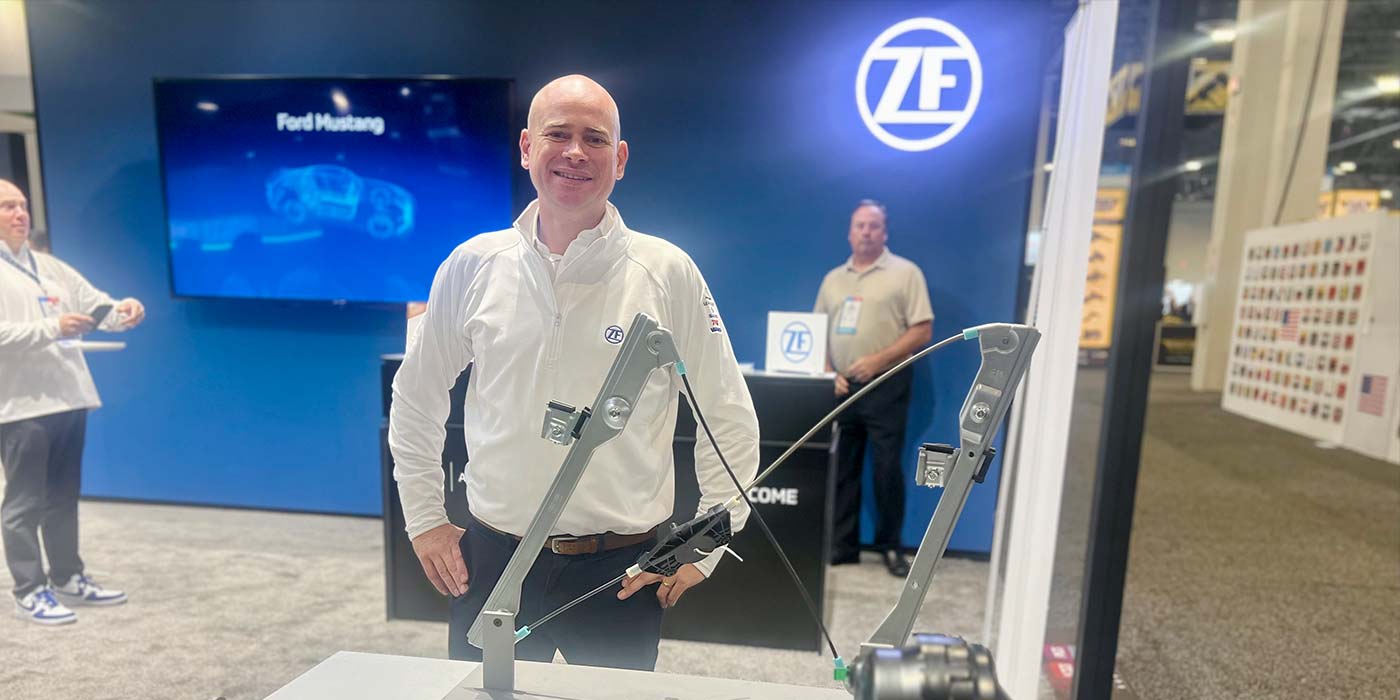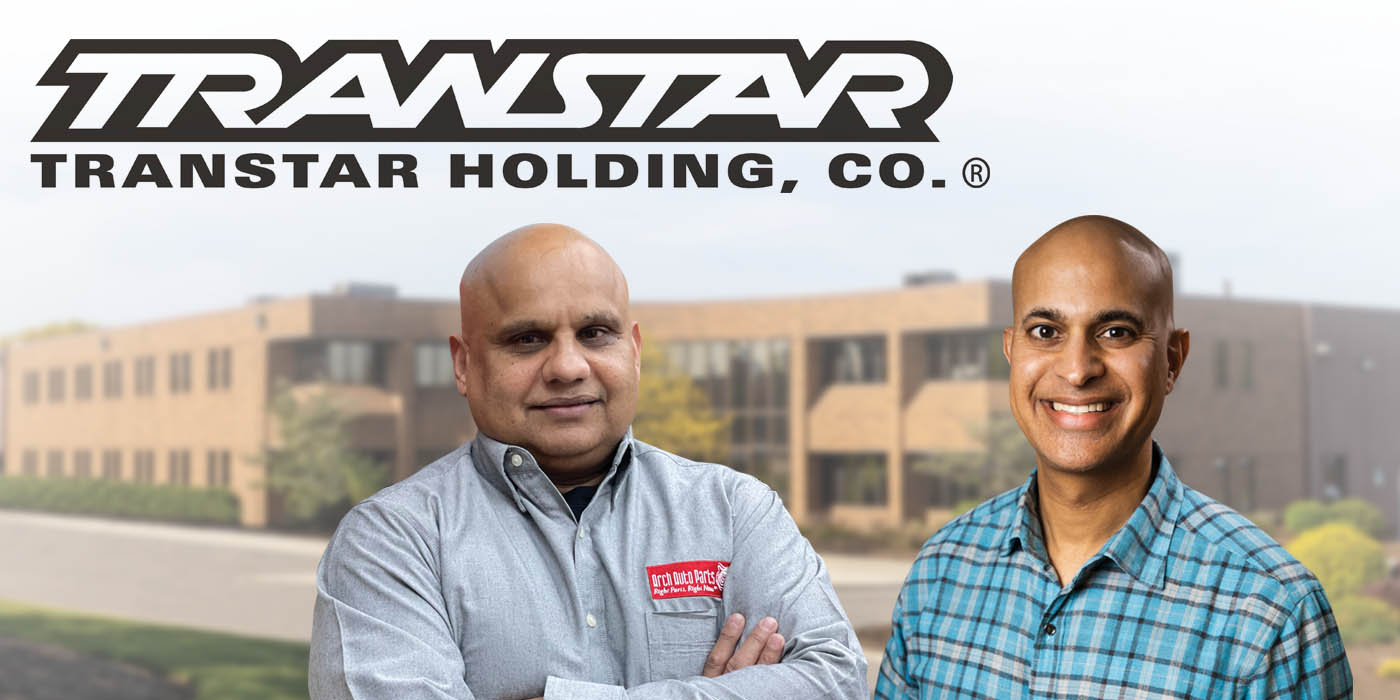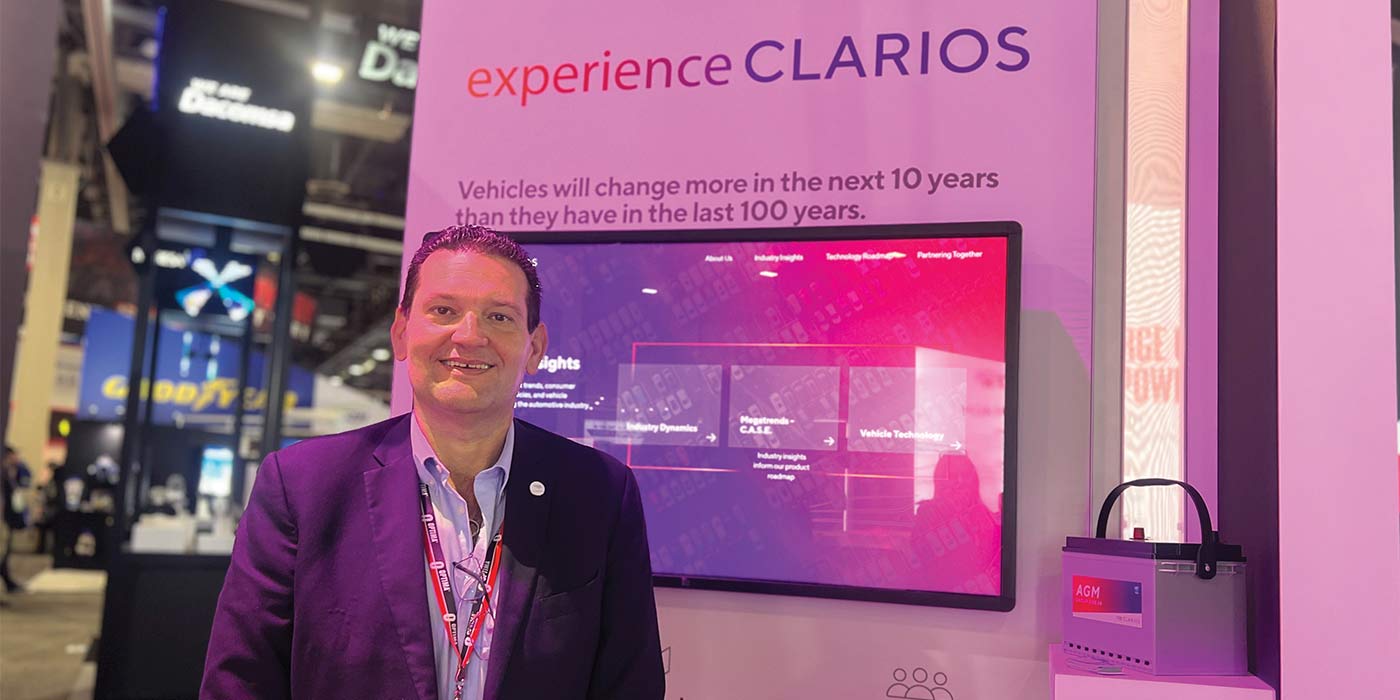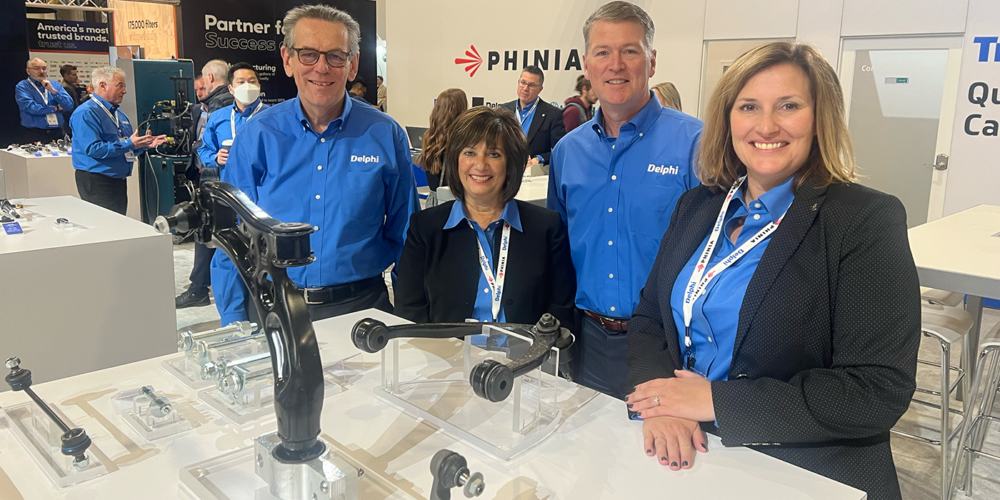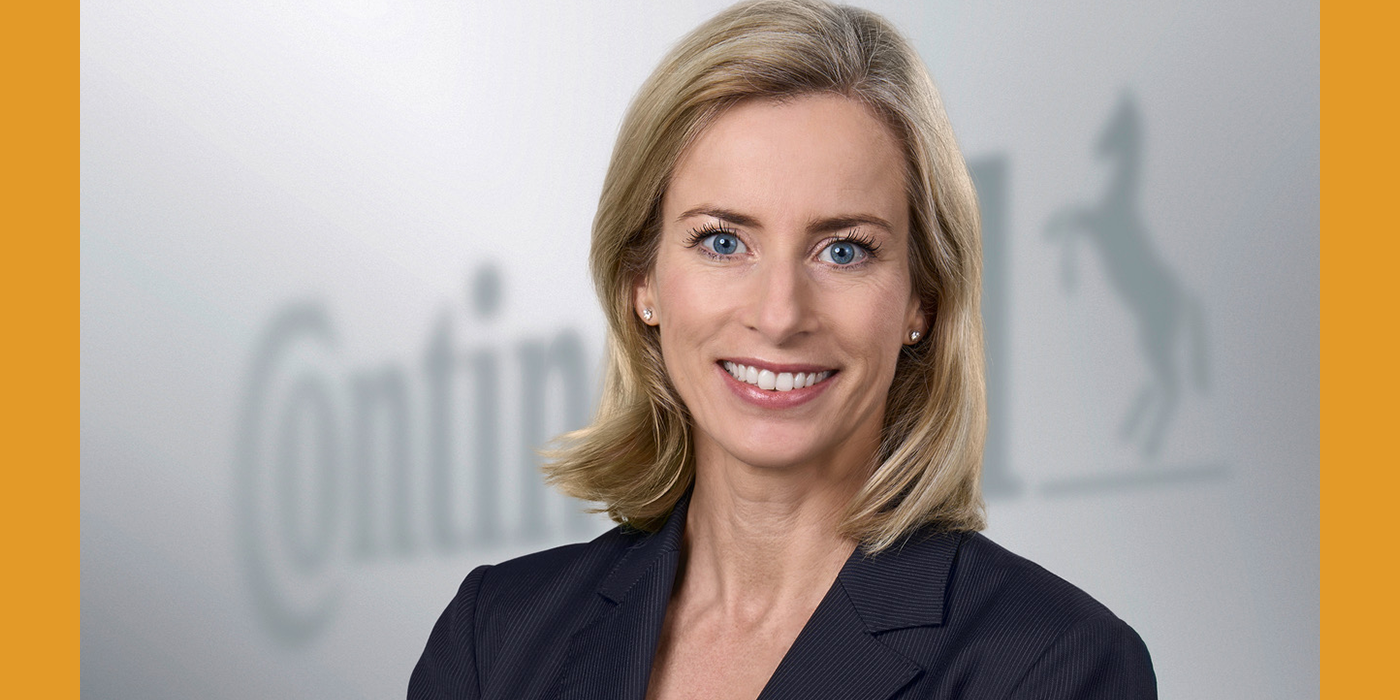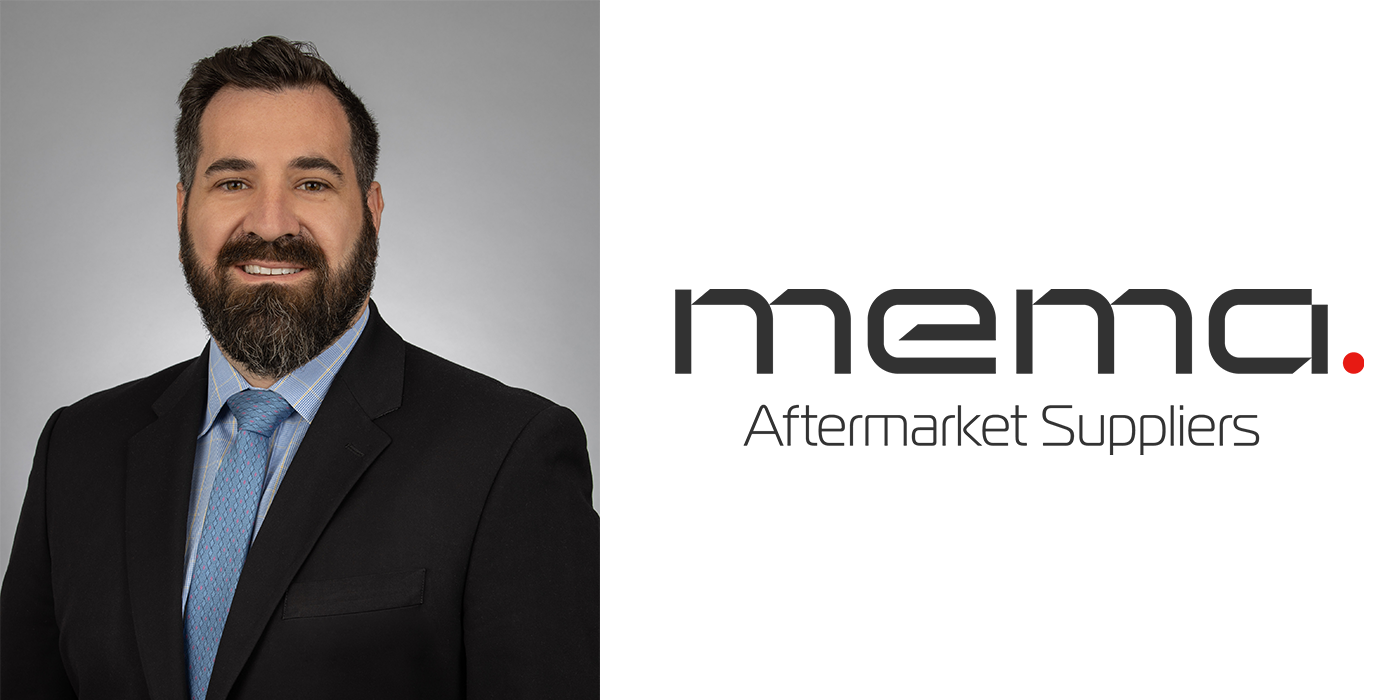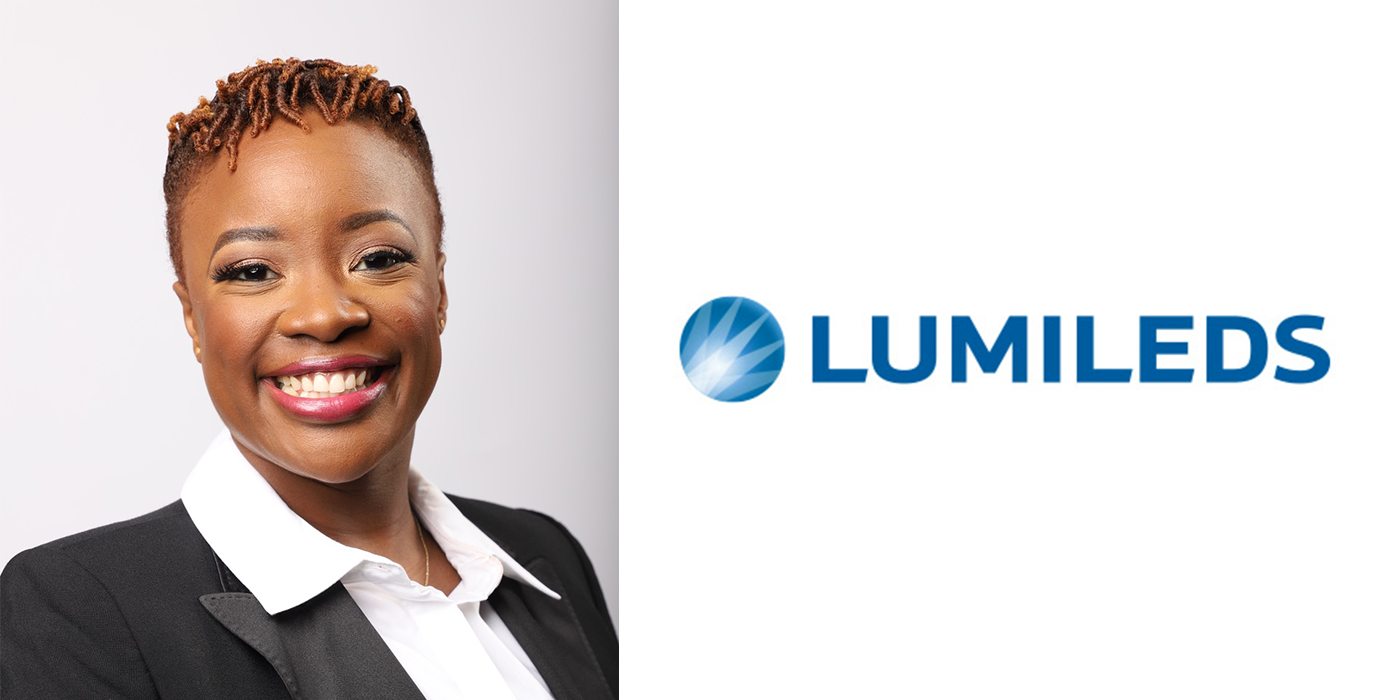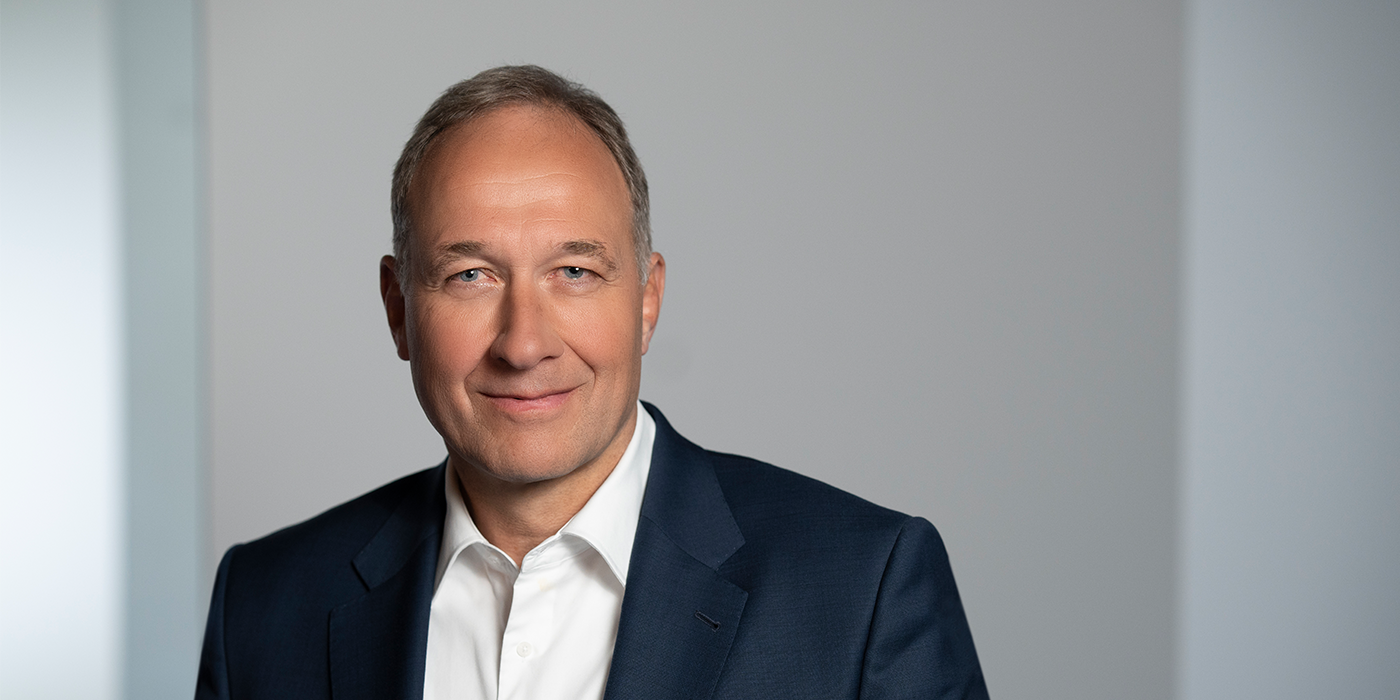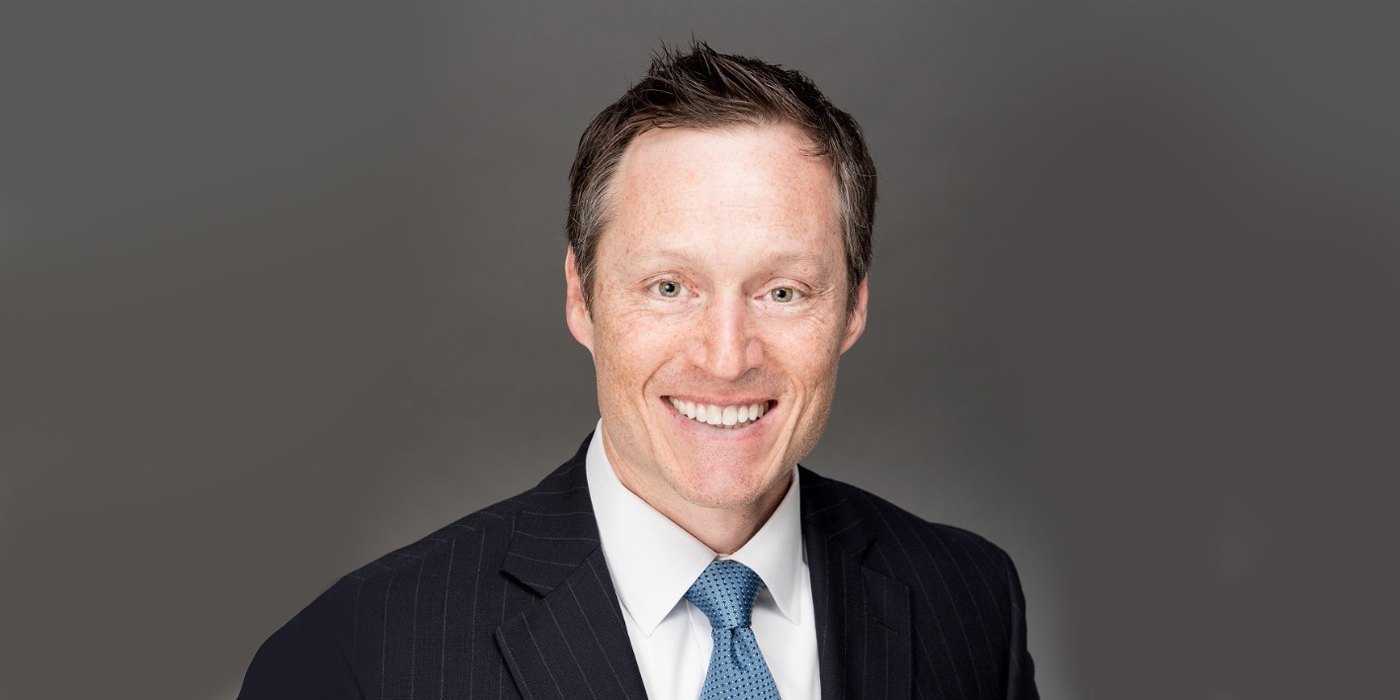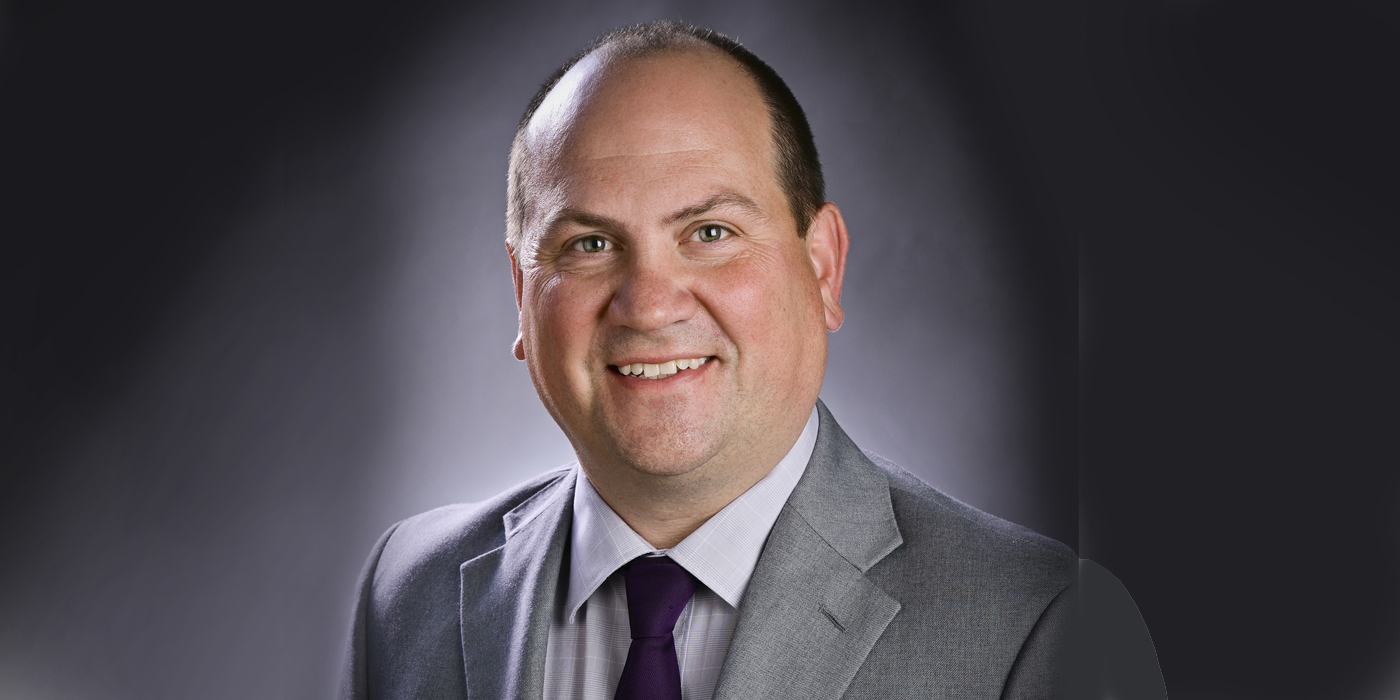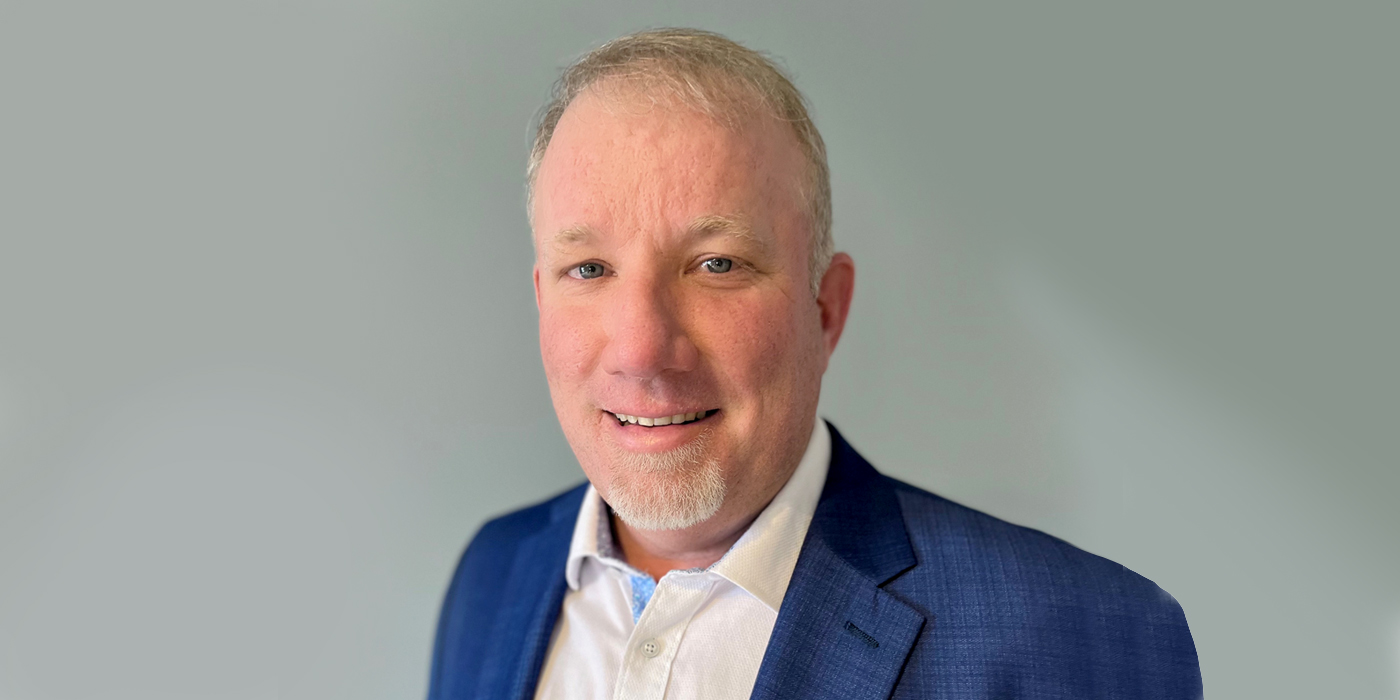 Max Dull, president, CEO Beck/Arnley
Max Dull, president, CEO Beck/Arnley
SMYRNA, TN — Every other week, aftermarketNews.com offers an interview with high-profile individuals in the automotive aftermarket. We give executives free reign to express their views on anything from the state of their corporations to recent legislative news to future trends in their niche markets. Here you see what matters to the newsmakers themselves.
This week, we hear from Max Dull, president and CEO of Beck/Arnley, the import replacement parts manufacturer that recently went independent after being divested from the former Dana AAG, now Affinia.
Max Dull began his aftermarket career in 1979 as the manager of an automotive repair facility and from there became general manager of an automotive warehouse distribution operation. Following his time working for a WD, Dull joined T&N, Plc. in 1987 as marketing manager for its North American automotive aftermarket division. When T&N acquired Clevite Engine Parts in 1990, he accepted a position as Eastern training manager.
Over the years, a series of promotions at Clevite, and Clevite’s subsequent acquisition by Dana, brought Dull to the position of VP of product management for Dana’s Engine Management Division, which included Borg Warner, Beck/Arnley and Clevite. In 2003, he was promoted to VP of product management for the Underhood Group. A year later he became VP and general manager for Beck/Arnley. Since then, Dull and his team have been responsible for the re-launch of Beck/Arnley, including redesigning the entire business as a stand-alone division.
With the divestiture of Beck/Arnley by the Affinia Group, Dull played a key roll in shepherding the business through the process. He was named president and CEO of the newly independent business in March of this year. He has also been an integral part of the new ownership. In addition to his duties with Beck/Arnley, Dull also currently serves as the CEO of Heritage Equity Group, the new owners of Beck/Arnley.
Dull graduated summa cum laude from Cleary University with a Bachelor of Business Administration degree, with a focus in quality process management. He also has completed the Executive Management Program at Loughborough University in England and the University of Michigan Executive Development Program. He is an ASE certified machinist and a Michigan certified mechanic.
An executive with a thorough knowledge of, and background in, nearly every segment of the automotive aftermarket, Dull provides interesting insights on the future of our industry. Join us as he brings us up to speed on the newly independent Beck/Arnley and the future of the import parts market.
It’s been six months since it was announced that Beck/Arnley was bought by Heritage Equity Group. How did the overall transaction progress? Were there any speed bumps or changes that were not anticipated? If so, how did you overcome those challenges?
I have participated in many business transitions in my career, from all aspects of being acquired, acquiring other business and divesting businesses. This transition of Beck/Arnley and our functions to a stand-alone, privately owned business was the smoothest I have ever experienced. We are thrilled to have all of our functions now within our direct control and all of these projects were completed ahead of schedule.
What made this transaction attractive initially?
Sales of parts for foreign nameplate vehicles is the fasting growing segment of the aftermarket and our research told us that technicians wanted exact OE match parts with a brand strongly associated with foreign nameplate vehicles when purchasing parts for repair of foreign nameplate cars.
Beck/Arnley had both of these things, so we knew it was a business that was poised for extraordinary growth. And everyone involved on both sides of the transaction knew that Beck/Arnley had much greater opportunity to thrive in this rapidly growing foreign nameplate parts aftermarket as an independent, privately owned, agile business.
How well do you think Affinia benefited from the sale of Beck/Arnley?
It is all about focus. While we at Beck/Arnley have become completely focused on our customers and our business, Affinia was able to do the same with its core business units. Events since the date of the sale have proven that what was stated in the original announcement is still true. With its brands, Affinia is a manufacturer and marketer of vertically integrated product lines. Beck/Arnley buys and sells a horizontal package of foreign nameplate parts that cuts across many product lines. These fundamental differences are much better served as separate, focused businesses. We have both benefited from the separation.
What are the benefits and challenges of separating Beck/Arnley from a large corporation and becoming independent?
The biggest challenge we faced is also the biggest benefit. We had to change the culture and way of thinking at every level of the organization. The original Beck/Arnley company was founded in 1914 and it operated as a privately owned business for many years.
However, Beck/Arnley operated under the ownership of several very large corporations for the past 20 years. We are now a privately owned company again and that is an entirely different mind-set.
For example, since separating from Affinia, we have far fewer lines between departments. Everyone is responsible for everything now, rather than working in narrowly defined departments and functions. Decisions are made immediately, on site. We are much more agile and have much better focus. We worked hard to make these culture changes. It has been an exhilarating experience and it has proven to have innumerable benefits for our business, our supply chain partners and our ultimate customer — the import technician.
What are your thoughts on the growing trend we are seeing in the marketplace where private equity investors are becoming increasingly interested and active in our industry?
I see it as a very positive trend that is good for the business being acquired, and good for our industry as a whole. We went through a long period in the 90’s, and even earlier in this decade, when investors did not look upon the automotive aftermarket favorably, in a general sense.
The automotive aftermarket operates in an inventory intensive business environment. With the continuing trend of parts proliferation there was skepticism about the ability of businesses in our market to sustain acceptable profit margins and meet cash flow objectives.
Private investors have seen through these surface issues to find that many businesses in the automotive aftermarket have sustained, and will continue to sustain, better than average financial performance. Vehicle owners continue to keep and maintain their vehicles longer, and all projections say that sales of automotive parts likewise will continue to grow.
In the publicly traded sector, stock prices of aftermarket businesses have outperformed many of the large OEM’s and tier one suppliers to the OEM market. And there is money available to invest. All of these elements have converged to make the automotive aftermarket attractive to private investors.
Again, I see this as good news, as private investors have proven themselves to bring much greater focus to the daily management of businesses in our market. This is good for our businesses and good for our customers.
In your opinion is the face of the aftermarket changing? Over the past few years, we’ve seen a number of large manufacturing firms sell off various aftermarket divisions to focus on their OE competencies. As a result, these aftermarket businesses become more concentrated, independent companies. Do you see this trend continuing?
Probably. Although, as someone who has spent many years in this industry and who has a genuine love for the aftermarket, I don’t understand this trend.
Just as you noted, the corporation that held Beck/Arnley prior to Affinia, along with many similar corporations, felt they would be better off divesting their aftermarket businesses to focus on supplying the OE market. Earnings projections for many of these corporations have fallen consequent to those divestitures.
I understand conceptually there may be conflicts in owning aftermarket and OE businesses. Sometimes, these conflicts may be irreconcilable, as in the case of developing new vehicle technologies that diminish aftermarket repair frequency and parts replacement.
But other than the few examples like this that come to mind, I believe balancing higher volume, lower margin OE businesses with higher margin, more inventory intensive aftermarket businesses makes good sense. Also, the aftermarket is counter-cyclical to OE, thus bringing additional balance. While I admit I do not completely understand the trend to divest, I have seen nothing that says it will stop.
What are your thoughts on the current status of the import parts marketplace and where do you see it heading in the near future?
I see the foreign nameplate sector as a significant bright spot in the aftermarket for all of the obvious reasons. It is the single largest growth segment in the entire aftermarket and rapidly becoming one of the largest single categories.
The market share of foreign nameplate vehicles in North America continues to grow at an incredible rate and shows no signs of slowing. This will fuel growth in sales of parts for foreign nameplate vehicles for many years to come.
What lies ahead for Beck/Arnley?
I want to explain why I used the term “foreign nameplate” to address your previous question about “import parts,” because it is essential in understanding what is happening in the marketplace and what lies ahead for Beck/Arnley.
The lines between “import” and “domestic” have blurred and will continue to blur. However, our research clearly shows that the technician’s view of foreign nameplate vehicles remains distinct and what drives their decisions when buying parts to install on these vehicles is different.
Even within the broader definition of foreign nameplate, there are different buying decision drivers for parts being fitted to high-end models like BMW, Mercedes and Lexus than for parts for more common brands like Toyota, Honda and Nissan.
Likewise, buying decision drivers vary when purchasing maintenance items like filters versus highly technical parts like engine management components. Overlaying all of this, the technician wants parts that have brands strongly associated with foreign nameplate vehicles when repairing a foreign nameplate vehicle.
Beck/Arnley has been in the import parts business — now foreign nameplate parts business — for more than 90 years and we understand the intricacies of this growing market. Independent research also has shown that Beck/Arnley is the most well recognized foreign nameplate brand in the market, amongst its full-line peers.
From this platform, our job is simple. We will remain focused on the basics of what we do best, remain focused on the needs of our customers and remain agile in responding to whatever changes the future brings.
The marketplace for replacement parts for foreign nameplate vehicles is growing exponentially and due to the unique nature of Beck/Arnley’s position in this market, I have never in my career been more excited about the future!
What changes have been made to the company’s organizational infrastructure? Will we see any new faces involved with the company?
We already have new faces in the company. For example, our new Chief Information Officer, Anne Coffin, was president and owner of her own consulting business for more than ten years, with many clients in the automotive industry. With her wealth of experience, Anne has brought additional new talent to our IT efforts and this new team has turbo-charged every area of IT in our business, from our enterprise systems to our web initiatives.
We also have made significant changes in our organizational chart to consolidate functions and departments, which has enabled us to be more efficient, agile and quick to react to market demands.
All packaging and distribution functions have been consolidated under Vince McMahon, as vice president of operations. All product management, pricing, and purchasing functions have been consolidated under Bob Anderson, as vice president of product management. All customer facing functions, including credit and customer service have been consolidated under Gail Holt, as vice president of administration. These are all highly experienced aftermarket personnel managing the business.
And now being privately owned, Manny Angus has been promoted to CFO, as his previous financial controller responsibilities have been expanded to include treasury and banking functions.
In addition to managing the internal aspects of our business, I have made it my personal mission to be face-to-face with our distributor customers constantly, to ensure the efforts of our entire organization are focused on supporting their needs.
We have gained new business, re-ignited some old business and are far into the process of establishing several significantly large new customer relationships.
We are far from being complete in our recruiting efforts. As our business continues to grow, we will fill additional roles with the best, brightest and most talented aftermarket professionals from within our organization or from the pool of talented people in our industry.
Is there anything new in the way of products — product positioning or new product launches — that you’d like to share?
Our basic product strategy will not change. We will continue supplying a full range of products to the foreign nameplate aftermarket. Our products will always match the form, fit and function of the original equipment part. We will continue to expand our coverage and product categories within this context.
As mentioned earlier, the Beck/Arnley brand name is the most well recognized full-line foreign nameplate brand in the market. The brand means a lot and we will not dilute its value or distract our efforts by straying from our core competencies.
However, now having the strong financial backing of our private equity partners, there are definitely opportunities to expand our offering within the context of our core focus on quality parts for foreign nameplate vehicles.
One of the real expansions in our offering lies within our technology and data efforts. Beck/Arnley won three industry awards in this past year for having robust, accurate and comprehensive products and product application data to feed the myriad electronic catalog formats in the market.
We will continue following and meeting all industry standard data guidelines. We recently launched a Web-based catalog that is second-to-none and we have greatly enhanced all customer directed facilities on our Web site. Our new enterprise computer system, supported by our newly formed in-house IT group, has the ability to link to any of our supply chain partners directly for full automation of business activities. And plans are in place to launch several other new technology initiatives shortly.
Our solidly based product strategy is being enhanced with greatly advanced technological tools. That marriage is the most exciting new “product” we are launching!
_______________________________________

